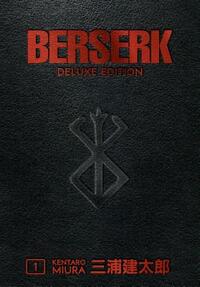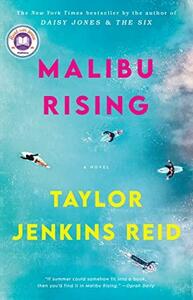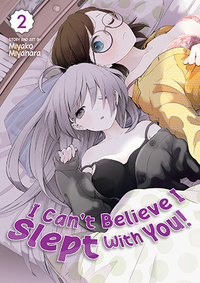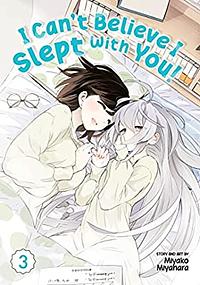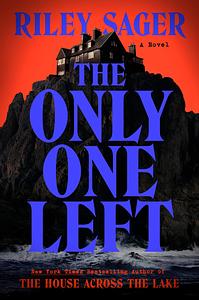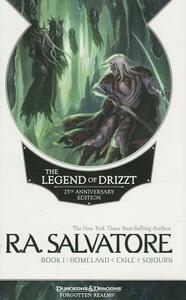Take a photo of a barcode or cover
the_scrivener_named_bartleby's Reviews (140)
Coming off of the 1997 animé and a vague handful of memes and knowledge that this was peak edge fiction, I was actually seriously worried I wouldn’t enjoy this, and I figured any criticism wouldn’t be well received. Not only that, but my biggest concern with the animé was the sharp pivot to magic, where the series had been strictly realistic beforehand.
Honestly, those concerns were completely unfounded and I ended up taking this series for what it was. No one ever talked about Puck (which I suspect is a side effect of needing to tout this as peak edge fiction) but he was a fantastic comic relief character and really offset a lot of Guts’s immense darkness and uncaring attitude. Guts is hard to like here, plain and simple. He does good things and he is a fascinating character to follow; you know what he’s after is a greater evil, but the obsession with doing so has made him callous and hostile. Puck softens the blow and honestly was my favorite character, though as we near the story the 1997 animé was set in, that will likely change.
Honestly, those concerns were completely unfounded and I ended up taking this series for what it was. No one ever talked about Puck (which I suspect is a side effect of needing to tout this as peak edge fiction) but he was a fantastic comic relief character and really offset a lot of Guts’s immense darkness and uncaring attitude. Guts is hard to like here, plain and simple. He does good things and he is a fascinating character to follow; you know what he’s after is a greater evil, but the obsession with doing so has made him callous and hostile. Puck softens the blow and honestly was my favorite character, though as we near the story the 1997 animé was set in, that will likely change.
Oh God.
I got this for a Goodreads achievement, but also because I wanted to push myself out of my comfort zone and read something I don’t normally read. And for a really long time, I thought I stumbled upon something special. Though it was not perfectly for me, I respected it. At first.
The initial sins were innocent enough—namely, that things are subtly alluded to, which feels great, and then explicitly confirmed with zero room for interpretation. That’s less great. When a character is an alcoholic, we see very subtle clues and we feel smart for picking up on them. If a character is a lesbian, more sharp-eyed observers could see the parts of that identity hinted at. If a character is a cheater, we get small glimpses of it. Unfortunately, all such mysteries are always confirmed in due time with no room for ambiguity, as the rest of the narrative depends on the explicit reveal in order to continue. Anyways, this is fine, and wouldn’t have cost too many points in the end. It’s just what takes this from a simple in-vogue book to something that could seriously have become a modern classic.
The narrative whiplashes between past and present were a bit of a struggle to contend with at first, but I was fine by the conclusion of Part 1. I would say about, ooh, 75%? of the book is incredible. After all of Part 1’s buildup, Part 2’s descent into chaos is perfectly delicious. I had to put the book down during moments that were so awkward that I couldn’t bear to keep reading without a break. There is this moment that is not explicitly identifiable in the text, but so much goes so horribly wrong that it ceases to be a drama and starts to be a comedy. This is the book chugging at maximum efficiency, and I started to look at the other books on the achievement list by Taylor Jenkins Reid and visualizing myself going, “No yeah, Taylor Jenkins Reid. I mean I just happened to pick this up with no expectations. Crazy good repertoire already and crazy good future ahead of her too.”
But the line couldn’t hold. Telling off a deadbeat in lengthy prose becomes absurd wish fulfillment where a man with zero respect for women is somehow cowed into silence by one woman with a very bad day, even when in between he starts lamenting that his son is “pussy-whipped.” Random ACAB commentary meanders its way in as awkwardly as it leaves. I am relieved that of all the many left-wing talking points, the lesbian coming out of the closet is done very subtly, with buildup, and has a very kindhearted resolution; one that, in the midst of a stressful series of events, served as a much-needed reprieve.
The ending is nice, and I love how the meaning of the foreshadowed fire in the beginning becomes redefined. But it doesn’t change the fact that many of the book's flaws begin compounding near the end. That rotting midsection became the undoing of the whole building, which was once a 4-star score.
Overall, there are worse things to be sure, and it’s not a dispassionately written book. I just think some of it could have been better off with more subtlety and a consistent throughline.
I got this for a Goodreads achievement, but also because I wanted to push myself out of my comfort zone and read something I don’t normally read. And for a really long time, I thought I stumbled upon something special. Though it was not perfectly for me, I respected it. At first.
The initial sins were innocent enough—namely, that things are subtly alluded to, which feels great, and then explicitly confirmed with zero room for interpretation. That’s less great. When a character is an alcoholic, we see very subtle clues and we feel smart for picking up on them. If a character is a lesbian, more sharp-eyed observers could see the parts of that identity hinted at. If a character is a cheater, we get small glimpses of it. Unfortunately, all such mysteries are always confirmed in due time with no room for ambiguity, as the rest of the narrative depends on the explicit reveal in order to continue. Anyways, this is fine, and wouldn’t have cost too many points in the end. It’s just what takes this from a simple in-vogue book to something that could seriously have become a modern classic.
The narrative whiplashes between past and present were a bit of a struggle to contend with at first, but I was fine by the conclusion of Part 1. I would say about, ooh, 75%? of the book is incredible. After all of Part 1’s buildup, Part 2’s descent into chaos is perfectly delicious. I had to put the book down during moments that were so awkward that I couldn’t bear to keep reading without a break. There is this moment that is not explicitly identifiable in the text, but so much goes so horribly wrong that it ceases to be a drama and starts to be a comedy. This is the book chugging at maximum efficiency, and I started to look at the other books on the achievement list by Taylor Jenkins Reid and visualizing myself going, “No yeah, Taylor Jenkins Reid. I mean I just happened to pick this up with no expectations. Crazy good repertoire already and crazy good future ahead of her too.”
But the line couldn’t hold. Telling off a deadbeat in lengthy prose becomes absurd wish fulfillment where a man with zero respect for women is somehow cowed into silence by one woman with a very bad day, even when in between he starts lamenting that his son is “pussy-whipped.” Random ACAB commentary meanders its way in as awkwardly as it leaves. I am relieved that of all the many left-wing talking points, the lesbian coming out of the closet is done very subtly, with buildup, and has a very kindhearted resolution; one that, in the midst of a stressful series of events, served as a much-needed reprieve.
The ending is nice, and I love how the meaning of the foreshadowed fire in the beginning becomes redefined. But it doesn’t change the fact that many of the book's flaws begin compounding near the end. That rotting midsection became the undoing of the whole building, which was once a 4-star score.
Overall, there are worse things to be sure, and it’s not a dispassionately written book. I just think some of it could have been better off with more subtlety and a consistent throughline.
The premise is the premise, and the express purpose of slightly trashy stuff like this is to get to schmaltzy scenarios and humorous entendre, so it's an unnecessarily steep battle to get us to like the main character by having her basically start this off as sextortion. That very quickly fades into the background and you can turn your brain off and just enjoy the lovely drawings or the stereotypical flustered BS that accompanies these things.
What throws a really gutpunching left hook is the homophobia sequence, and the other character realizing that they contributed to that inadvertently. A lot of the dialogue there is very plainly written but in a way that's somehow even more crushing to read. I really liked that and thought it elevated this beyond just some throwaway timewaster. Pretty great. Picked it up out of curiosity and was 60 pages in before I could blink.
What throws a really gutpunching left hook is the homophobia sequence, and the other character realizing that they contributed to that inadvertently. A lot of the dialogue there is very plainly written but in a way that's somehow even more crushing to read. I really liked that and thought it elevated this beyond just some throwaway timewaster. Pretty great. Picked it up out of curiosity and was 60 pages in before I could blink.
Great schmaltz. Absolutely fantastic. Afraid to rate this as high as five star and thus admit to myself that I have really corny-ass taste. Amazing tender moments. Could not stop reading even if I was threatened.
Ended extremely abruptly. This was not without its moments, and I appreciate the return to exploring a fear of homophobia like in the first volume, but I think the content and the plot peaked in the second book. It was still immensely sweet and a joy to read.
Not bad, but not great. Most of the decent things about this whodunit happen in the second half.
Two things make this a difficult book to recommend. The first is not the author's fault; indeed, it is no one's fault other than just the world's lack of awareness. The criminal justice system and just what exactly Szacki is might alienate some readers who don't quite understand what the prosecutor of a case is doing to be so deeply involved with crime scene investigation. This is what was confusing to me after living in Poland for some time, and more day-to-day life and activities might prove confusing to other readers. That's not something I'd hold against picking up the book; honestly, for the sake of broadening cultural horizons and having a look at authentic-ish Polish bureaucracy, this book does the trick. (Additionally, the translation gets a bit antiquated and awkward at points, and knowing Polish I can mentally see what was the original line and often have to admit that there's no neat way of expressing that idea, but oh well.)
Second, and something that is a fault of the author's, is how bad the characters are. My God. The story is a good one, but the characters are a series of completely uninspired tropes that were just starting to get dated and annoying in 2007 when this was published. For example, there is a lecherous cop. He is either "lecherous" or a "cop" in any of his scenes, forcing in constant references to sex in between commenting on the the job at hand. Arguably he's meant to be annoying, so what about the reporter with whom the protag is tempted to start an affair? I don't get what the appeal for Szacki is other than that she's kind of pretty which seems to be enough for him to just throw it all away. She doesn't even particularly throw herself at him, and by the end it feels like she was just a token for the villains to threaten him with, twirl their moustache and proclaim "You're gettin' too close, you better drop this case, see?!" The wife and child fulfill the role of "wife" and "child", as in the wife nags but used to be a lot more fun and the child draws drawings and has stuffed animals. The most interesting character in all this was the nagging boss, and only because of the interesting dynamic of having a male character freak out over her abusing her power to extort sexual favors from him.
And at the center of this cascade of caricatures sits Szacki, who never feels particularly sharp or interesting. The book would have you believe it's a more grounded and realistic take on cop dramas, and therefore its hero is not some sexy movie star and a savant, but an average Joe behind a desk.,
And yet it indulges in all the tropes of incessantly thinking about the case, being unsatisfied at home, wanting to start an affair, etc. When you don't follow that up with some interesting savant-ism from the guy, it's not very exciting. It's realistic, but it's not entertaining to read, like I've had to read through a banker's very mundane work shift. The book IS a mystery/thriller, and so the protagonist should be a guy who pieces things together in a way we can't or breaks the rules and gets a crucial piece of evidence. Instead, oh God, we endure entire sequences of his job that never advance the plot and are just pages-long demonstrations of "yeah my job sucks" like having to prosecute a woman who killed her husband in self-defense.
However, what is this book's saving grace is the buildup at the end, where the pieces of the mystery start falling into place and a vise starts closing in around the protagonist. Something that I wish had a bigger role was the constellation therapy, and it ultimately does, but as a gimmick I think it would have been interesting to write around and have it be the quirk of the protagonist, using it to solve cases or understand crime scenes. I like that kinda stuff, and if the book weren't so obsessed with stressing that Hollywood sucks, that it isn't just some cop show, and at one point having all the audacity in the world to declare "this isn't some detective novel", then I think we could have had some real fun with constellation therapy as a means to sniff out criminals. There are two books left in the series and I hope it comes back. The mystery itself was exciting, and the way it tied into history in an authentically Polish way was especially harrowing and sparked fear for the reader. With better characters, I would have been more afraid and the stakes would have been higher.
Overall, not the worst--it feels as though the mystery part was easy to write for Miłoszewski, but populating it with realistic people was a much harder task. I certainly hope he improves with subsequent stories.
Two things make this a difficult book to recommend. The first is not the author's fault; indeed, it is no one's fault other than just the world's lack of awareness. The criminal justice system and just what exactly Szacki is might alienate some readers who don't quite understand what the prosecutor of a case is doing to be so deeply involved with crime scene investigation. This is what was confusing to me after living in Poland for some time, and more day-to-day life and activities might prove confusing to other readers. That's not something I'd hold against picking up the book; honestly, for the sake of broadening cultural horizons and having a look at authentic-ish Polish bureaucracy, this book does the trick. (Additionally, the translation gets a bit antiquated and awkward at points, and knowing Polish I can mentally see what was the original line and often have to admit that there's no neat way of expressing that idea, but oh well.)
Second, and something that is a fault of the author's, is how bad the characters are. My God. The story is a good one, but the characters are a series of completely uninspired tropes that were just starting to get dated and annoying in 2007 when this was published. For example, there is a lecherous cop. He is either "lecherous" or a "cop" in any of his scenes, forcing in constant references to sex in between commenting on the the job at hand. Arguably he's meant to be annoying, so what about the reporter with whom the protag is tempted to start an affair? I don't get what the appeal for Szacki is other than that she's kind of pretty which seems to be enough for him to just throw it all away. She doesn't even particularly throw herself at him, and by the end it feels like she was just a token for the villains to threaten him with, twirl their moustache and proclaim "You're gettin' too close, you better drop this case, see?!" The wife and child fulfill the role of "wife" and "child", as in the wife nags but used to be a lot more fun and the child draws drawings and has stuffed animals. The most interesting character in all this was the nagging boss, and only because of the interesting dynamic of having a male character freak out over her abusing her power to extort sexual favors from him.
And at the center of this cascade of caricatures sits Szacki, who never feels particularly sharp or interesting. The book would have you believe it's a more grounded and realistic take on cop dramas, and therefore its hero is not some sexy movie star and a savant, but an average Joe behind a desk.,
And yet it indulges in all the tropes of incessantly thinking about the case, being unsatisfied at home, wanting to start an affair, etc. When you don't follow that up with some interesting savant-ism from the guy, it's not very exciting. It's realistic, but it's not entertaining to read, like I've had to read through a banker's very mundane work shift. The book IS a mystery/thriller, and so the protagonist should be a guy who pieces things together in a way we can't or breaks the rules and gets a crucial piece of evidence. Instead, oh God, we endure entire sequences of his job that never advance the plot and are just pages-long demonstrations of "yeah my job sucks" like having to prosecute a woman who killed her husband in self-defense.
However, what is this book's saving grace is the buildup at the end, where the pieces of the mystery start falling into place and a vise starts closing in around the protagonist. Something that I wish had a bigger role was the constellation therapy, and it ultimately does, but as a gimmick I think it would have been interesting to write around and have it be the quirk of the protagonist, using it to solve cases or understand crime scenes. I like that kinda stuff, and if the book weren't so obsessed with stressing that Hollywood sucks, that it isn't just some cop show, and at one point having all the audacity in the world to declare "this isn't some detective novel", then I think we could have had some real fun with constellation therapy as a means to sniff out criminals. There are two books left in the series and I hope it comes back. The mystery itself was exciting, and the way it tied into history in an authentically Polish way was especially harrowing and sparked fear for the reader. With better characters, I would have been more afraid and the stakes would have been higher.
Overall, not the worst--it feels as though the mystery part was easy to write for Miłoszewski, but populating it with realistic people was a much harder task. I certainly hope he improves with subsequent stories.
Equal parts memoir and self-help audiobook, although it comes with the frequent frustration of Willam constantly insisting we check the attached .pdf. I get it. Drag is a visual medium, but I came here for Willam's comedy. I'd be looking at the YouTube page if that was what I was in for, but that's just a minor point.
Willam was the first drag queen I became fascinated by and figured would be the obvious winner of Season 4 when I first got into the show. So I got this book ages ago, listened to most of it, but never finished it. In the interest of looking for background noise, I found this in my old purchases and kicked it back up and had... well, not such a fun time.
Willam's personality sells this book. The unprofessionalism of just belching during recordings is ignorable because they pass it off with charisma and not caring what anyone thinks. To that end, I want to stress the low rating doesn't have to do with any of the morally objectionable content of the book, which is to say Willam's takes on incest, spousal abuse, bulimia/anorexia, and a few others. Most can be written off as Willam being excruciatingly honest and dipping more into the memoir side than the advice side. But ironically, the strange thesis of the book is to hate yourself a little less and to act like it--and to take this book, or any self-help book for that matter, as absolute gospel is stupid beyond belief. This person is not you no matter how much you like them, and Willam is quick to shut down any level of parasocial interaction.
So, with all that being said, I think I'm a little sad I didn't get more out of this book. I think I would have wanted something more on the memoir side, as I don't really relate to drag and a lot of it washed over me, particularly after years of not keeping up with drag or RuPaul's Drag Race. (I think the golden years were Seasons 4-8.) There are plenty of memoir-adjacent tidbits; no start-to-finish narrative, just more like we slingshot around from time to time as Willam uses an anecdote to drive a point across.
This is all still very well-written and funny. Willam puts themselves down near the end, saying their act is one of a stunt queen because Bianca Del Rio's conquered comedy. For someone who exudes such confidence, that self-deprecation, however subtle, made me a little sad. Louis C.K. is my favorite comedian but that doesn't mean I'll turn my nose up at any other comedian. Willam can be downright hilarious, adroitly wielding insults like knives, and this book is hilarious all throughout and reminded me why I'd followed Willam's exploits for a while.
I think the kairos of the book must be what made it suffer. Most of what was in it was a little reliant on the times and a pop culture snapshot, and didn't feel so universal nearly ten years later from the book coming out. Even so, I'm vacillating on whether this is a 3 or a 4. I might edit this review later. I mean, I read some real shit this year, and this isn't shit at all. I think I just wanted more, and I can't put into words what it might be or what was missing. But something was.
Willam was the first drag queen I became fascinated by and figured would be the obvious winner of Season 4 when I first got into the show.
Spoiler
So when Willam did not win and was instead cast out Paradise-Lost-style from Heaven, I was devastated.Willam's personality sells this book. The unprofessionalism of just belching during recordings is ignorable because they pass it off with charisma and not caring what anyone thinks. To that end, I want to stress the low rating doesn't have to do with any of the morally objectionable content of the book, which is to say Willam's takes on incest, spousal abuse, bulimia/anorexia, and a few others. Most can be written off as Willam being excruciatingly honest and dipping more into the memoir side than the advice side. But ironically, the strange thesis of the book is to hate yourself a little less and to act like it--and to take this book, or any self-help book for that matter, as absolute gospel is stupid beyond belief. This person is not you no matter how much you like them, and Willam is quick to shut down any level of parasocial interaction.
So, with all that being said, I think I'm a little sad I didn't get more out of this book. I think I would have wanted something more on the memoir side, as I don't really relate to drag and a lot of it washed over me, particularly after years of not keeping up with drag or RuPaul's Drag Race. (I think the golden years were Seasons 4-8.) There are plenty of memoir-adjacent tidbits; no start-to-finish narrative, just more like we slingshot around from time to time as Willam uses an anecdote to drive a point across.
This is all still very well-written and funny. Willam puts themselves down near the end, saying their act is one of a stunt queen because Bianca Del Rio's conquered comedy. For someone who exudes such confidence, that self-deprecation, however subtle, made me a little sad. Louis C.K. is my favorite comedian but that doesn't mean I'll turn my nose up at any other comedian. Willam can be downright hilarious, adroitly wielding insults like knives, and this book is hilarious all throughout and reminded me why I'd followed Willam's exploits for a while.
I think the kairos of the book must be what made it suffer. Most of what was in it was a little reliant on the times and a pop culture snapshot, and didn't feel so universal nearly ten years later from the book coming out. Even so, I'm vacillating on whether this is a 3 or a 4. I might edit this review later. I mean, I read some real shit this year, and this isn't shit at all. I think I just wanted more, and I can't put into words what it might be or what was missing. But something was.
The author introduces twist after twist, which leads to less of a mystery that can be guessed but instead fosters an atmosphere of overwhelming paranoia that grips you. I’m very pleased with having read it; I stepped out of my comfort zone to read this for a Goodreads achievement and quite frankly, I am all the better for it. The book’s description made me feel like it would be worth my time, and that gamble was abso-fucking-lutely right. I may be rereading it sometime just to appreciate all the twists more. It’s amazing a book like this can exist in 2024’s atmosphere of contemporary slop—slop that was offensively placed on the same list as this book, and that could have caused me to miss it if I had not been meticulous perusing the descriptions for just one that I would like.
The only issue I take is maybe the last 2-4 twists in this book. They are not dealbreakers, I was in too far by that point, but truthfully I think they were the things that were finally, FINALLY too hard to buy. But it’s fine. In fact, depending on how I feel as time goes on, I might change this to a five. We’ll see.
The only issue I take is maybe the last 2-4 twists in this book. They are not dealbreakers, I was in too far by that point, but truthfully I think they were the things that were finally, FINALLY too hard to buy. But it’s fine. In fact, depending on how I feel as time goes on, I might change this to a five. We’ll see.
I'm not sure that the origins of Drizzt were all that interesting, or necessary to hear (or read). Drizzt would have been more interesting if he struggled with some kind of darkness where he saw the drow point of view, but even "The Hunter" persona is more akin to starvation-based survival instinct than some genuinely evil individual. These books are especially boring with no one lighthearted for Drizzt to play off of, whether it's Wulfgar, Regis, or Bruenor. If people really want a canon origin story, then I suppose one now exists. But I would not call it wholly necessarily.
The low rating has nothing to do with the content or writing style; rather, it’s to do with this book’s unfortunate antiquity. At best, this is a case study of very primordial Internet issues, and from a historian’s perspective, it is a great resource to trace the genealogy of modern-day Internet issues back to two potential grandfathers (though the line is unlikely to be direct.) However, it seems to be more of a guidebook and analysis on what must be done going forward with the Internet as a new forum. All of this advice ranges from the presently fairly obvious to the grim realization of “It’s too late, we should have listened to these ideas back then.” Even the stuff that hasn’t changed from back in the day doesn’t really have a solution that could be applied; it’s almost a commentary on human nature in those parts. Any information that can be gleaned from this is simply, by and large, outdated—making any value this book has into historical text, rather than informative advice.
